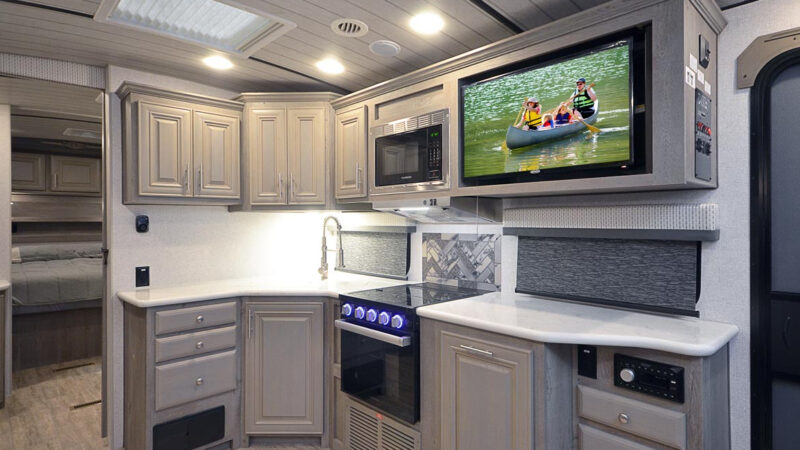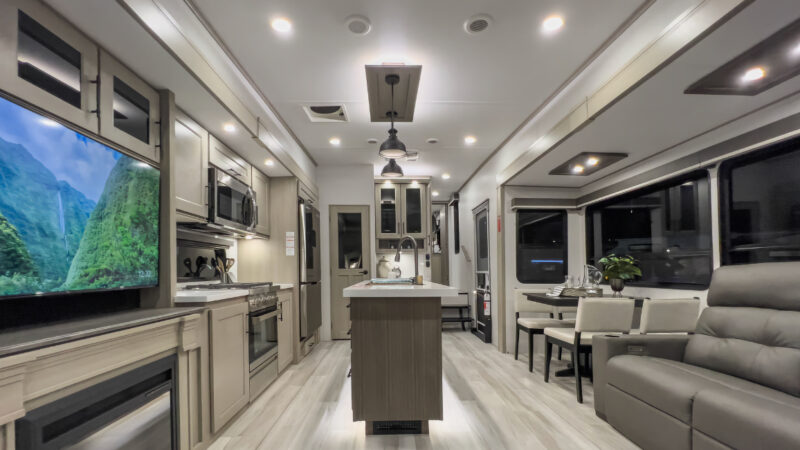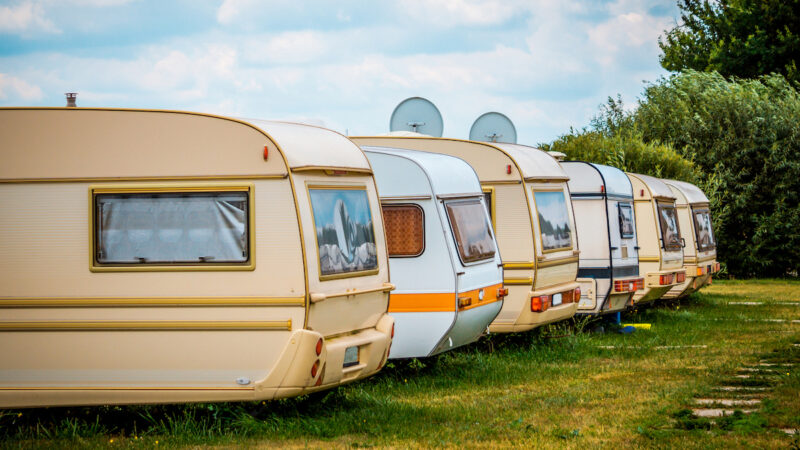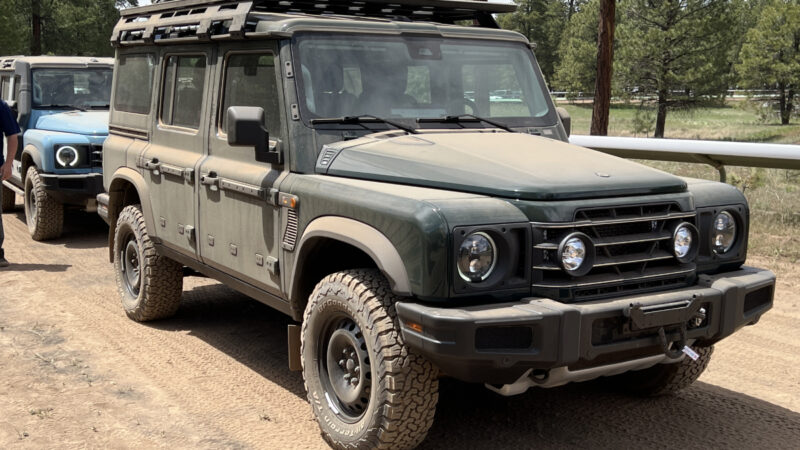Shop Talk: Peace Vans Turns Volkswagen ID. Buzz into an Electric Camper Van
| Shop: Peace Vans | Location: Seattle, WA | Founded: 2013 | Specialty: Volkswagen Van Conversions |
When Harley Sitner bought an old Volkswagen shop called Peace Vans in Seattle’s industrial SoDo district in 2013, he thought it might become his own private garage. He just needed a place to do trustworthy work on his Vanagon. And if a camper van is a home on wheels, a good caretaker is a contractor, plumber, electrician and carpenter rolled into one. “It’s really hard to build something that exists in a moving vehicle,” Sitner says. “Going down the highway, 75 miles an hour, stuff has to be built really well. Otherwise it’s gonna rattle apart eventually.”
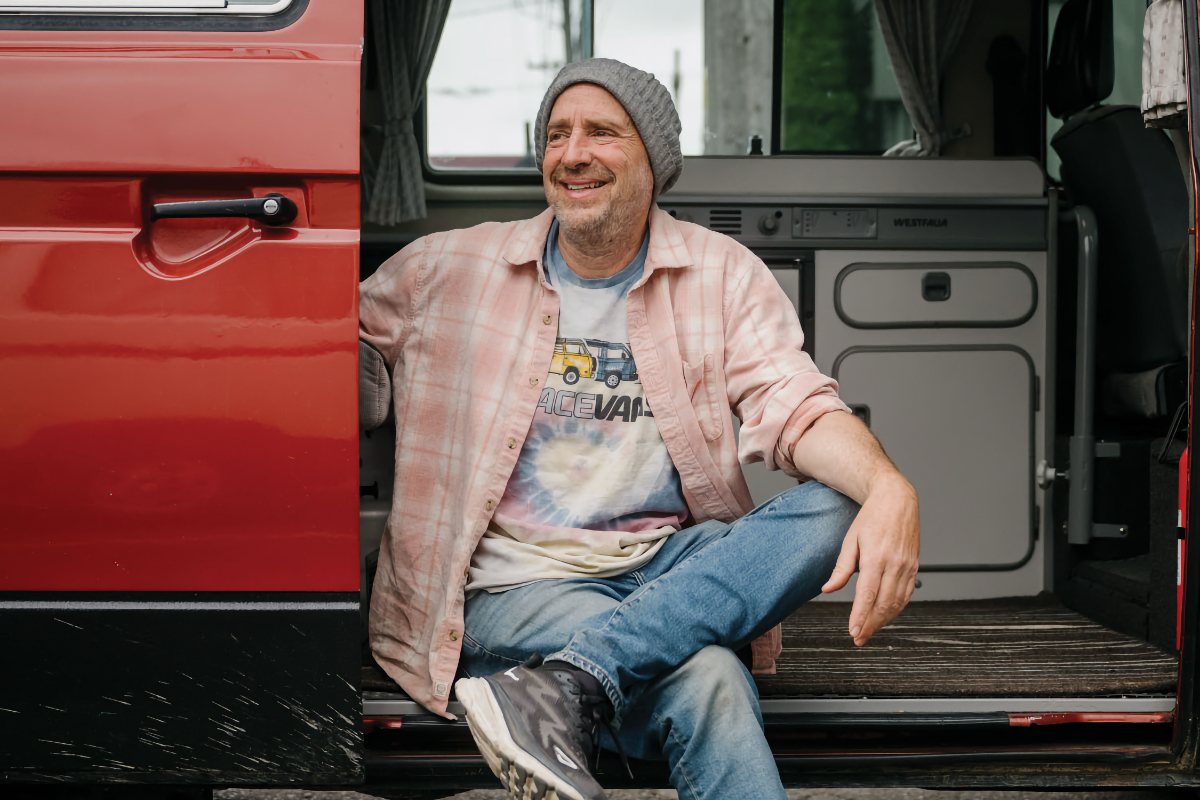
Harley Sitner latched on to Peace Vans because of his own affinity for retro rides and road-trip culture. (Photo Credit: Grant Hindsley)
Over the past decade, Sitner has built countless vans, as well as a humming business. Today, Peace Vans is 30 employees strong, and essentially a one-stop shop serving the full spectrum of vanlife needs. Alongside Vanagon repair and restoration, they offer camper van rentals, curated trips to Baja, Class B camper van services and electric conversions. They’ve also introduced new vans for conversion, focusing on smaller-footprint vehicles that appeal to city-dwellers. In 2020 they partnered with Mercedes-Benz on a Metris conversion.
Now, the shop is collaborating with Volkswagen to devise camper solutions for the ID. Buzz, VW’s hotly anticipated all-electric van, rolling out in the U.S. market this fall. With its obvious design nods to vintage VW vans, the ID. Buzz is perfectly tuned to the Peace Vans aesthetic.
“It’s being there for people along that journey, wherever they are,” Sitner says. As for Peace Van’s journey, it’s a particularly poignant moment, partnering with VW on an EV while beloved Vanagons continue to fill their vintage shop: “It’s very full circle for us.”
Q: Was it always Vanagons for you?
Sitner: My whole life, I’d desired a Volkswagen camper van—in college, following the Grateful Dead, early trips to Baja. I never pulled the trigger. And then in 2010, I had a daughter and I decided: “I better start doing the things.” I bought a Volkswagen camper van in 2010, and I rapidly had the same experience most owners of those vehicles have. It just broke down, and it broke down quite frequently. My love for it grew in an inverse proportion to its reliability.
I struggled to find a decent shop. I eventually found a teeny little shop in the SoDo neighborhood of Seattle that was terrible like all the other shops: They didn’t return my calls, the work quality was questionable, and they were actually about to go out of business. I knew there were two really good employees and the shop had an interesting name: Peace Vans. I thought, “All my friends with these vehicles and I are willing to spend a bunch of money. How hard can it be to do this better than anyone else?”
Q: What is a signature feature of a Peace Vans build?
Sitner: It’s an abstract concept, but really we focus on quality. We get dinged sometimes ‘cause everything we do is a little pricey, but we’re just not willing to compromise. We spend a lot of time sourcing materials, thinking about construction methodology, engineering out complexity and engineering in simplicity so that the stuff just works.
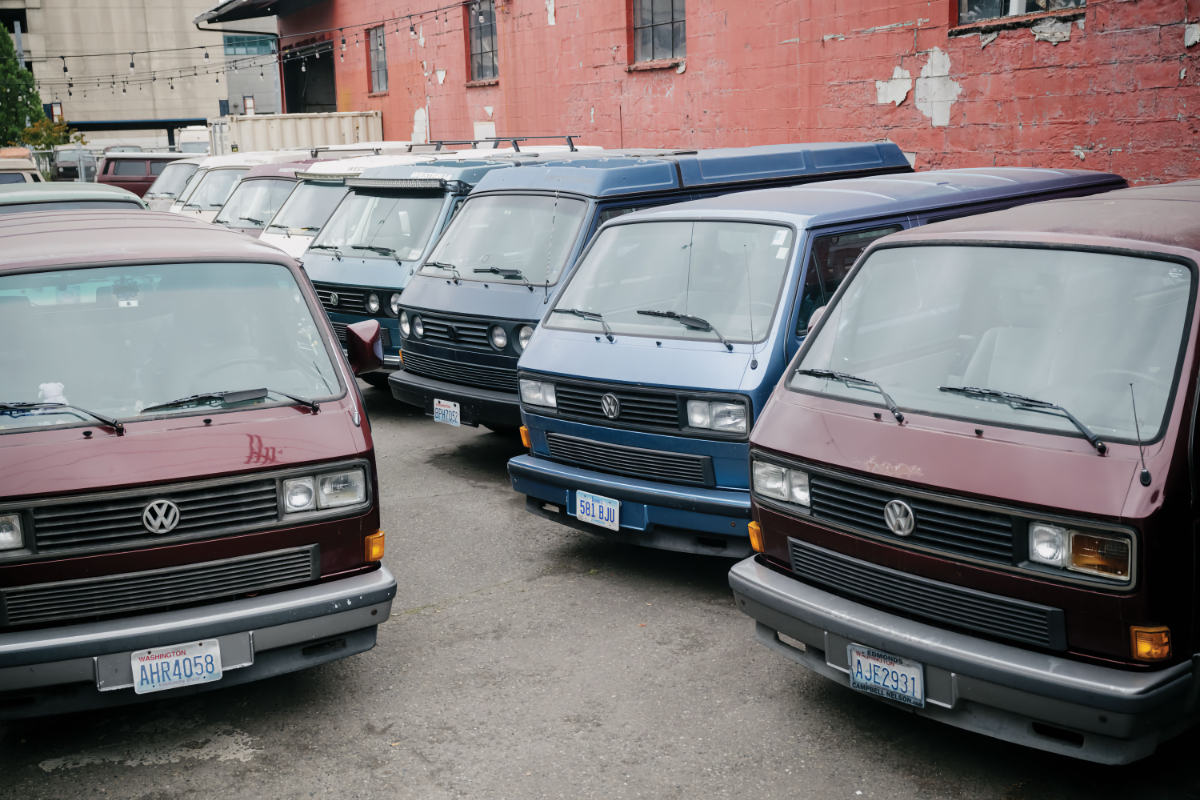
Photo Credit: Grant Hindsley
Q: Was there a moment when you thought: “This is gonna work”?
Sitner: Building pop-up Metris campers for Mercedes was a huge investment for our small company. No one was doing it. It was unproven. But there was a moment where people kept calling and ordering ‘em. I realized were doing something awesome here that people really want. We’ve put almost a thousand of those on the road over five or six years.
Q: Do you have an overarching philosophy for what you want to do moving forward?
Sitner: If we go away, a lot of customers will be left in the lurch—no mechanics, no parts, no resources. There’s a responsibility to the community to keep the business moving. We really wanna see the classic-EV conversion business scale up. I mean, if we get hundreds of vintage VWs electrified and on the road, how much fun would that be?
Q: Are you still driving that first van around?
Sitner: Yeah. And the major joy factor is just transmitting this lifestyle passion to my kid. She’s 14 now. I do believe what you expose your kids to influences them. And I think raising my kid with the camper van and with a dad who owns a business that is a vehicle for love, connection, disconnection—that is a real gift.
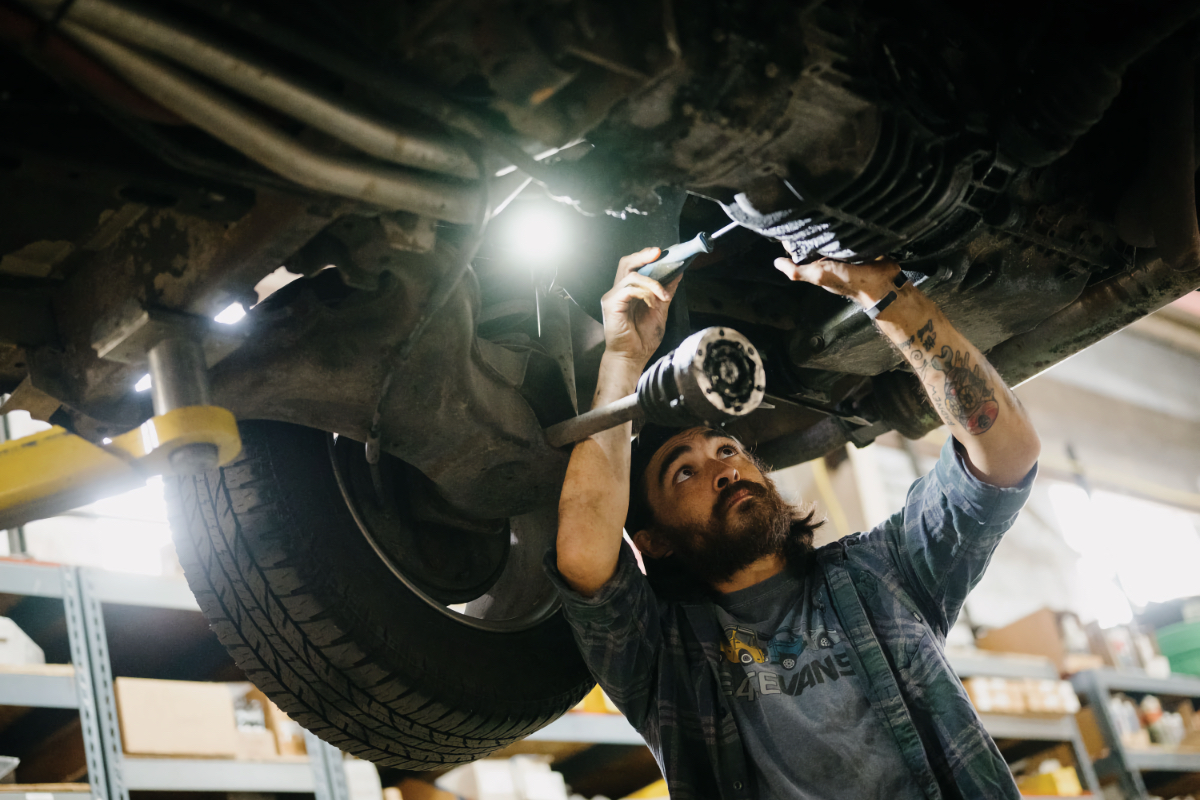
Photo Credit: Grant Hindsley
Take a Trip
Peace Vans is all about the lifestyle— so much so that they offer a self-guided Baja excursion ($3,294) that includes six nights in a camper van, prebooked campsites, and on-the-ground support from their team at all hours.
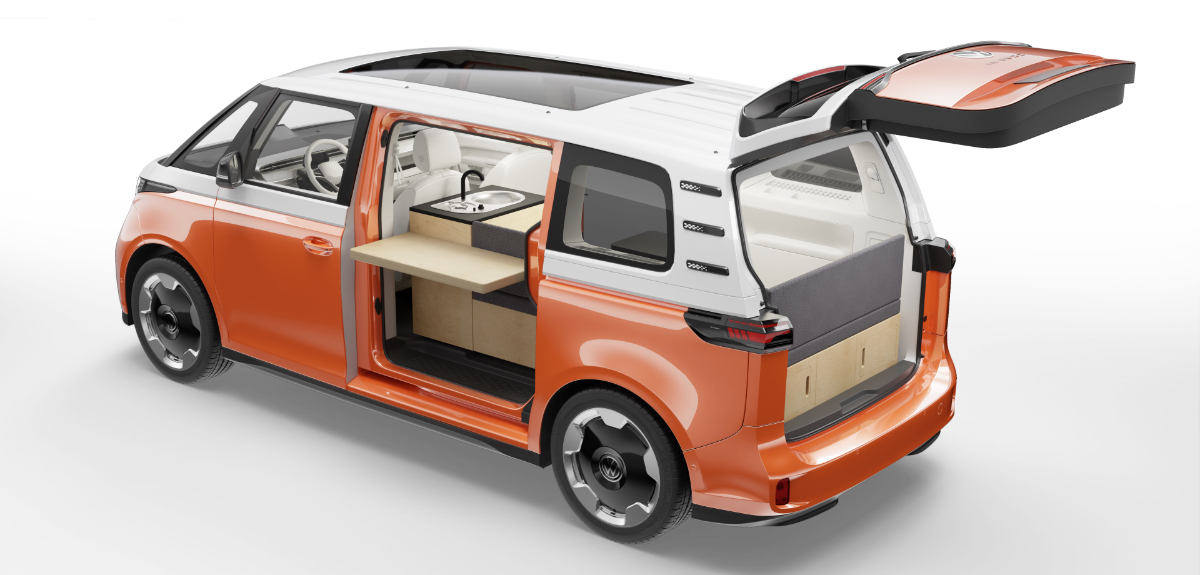
Photo Credit: Peace Vans
Build Your Own EV
Sitner created his first electric conversion vehicle for Burning Man years ago. Now, the concept has taken off. The Peace Vans team converts various Volkswagens from gas to electric. “Have a VW Thing?” the website asks. “We’ll do that, too.”
This article originally appeared in Wildsam magazine. For more Wildsam content, sign up for our newsletter.
The post Shop Talk: Peace Vans Turns Volkswagen ID. Buzz into an Electric Camper Van appeared first on RV.com.
Source: https://www.rv.com/rv/shop-talk-peace-vans-turns-volkswagen-id-buzz-into-an-electric-camper-van/


